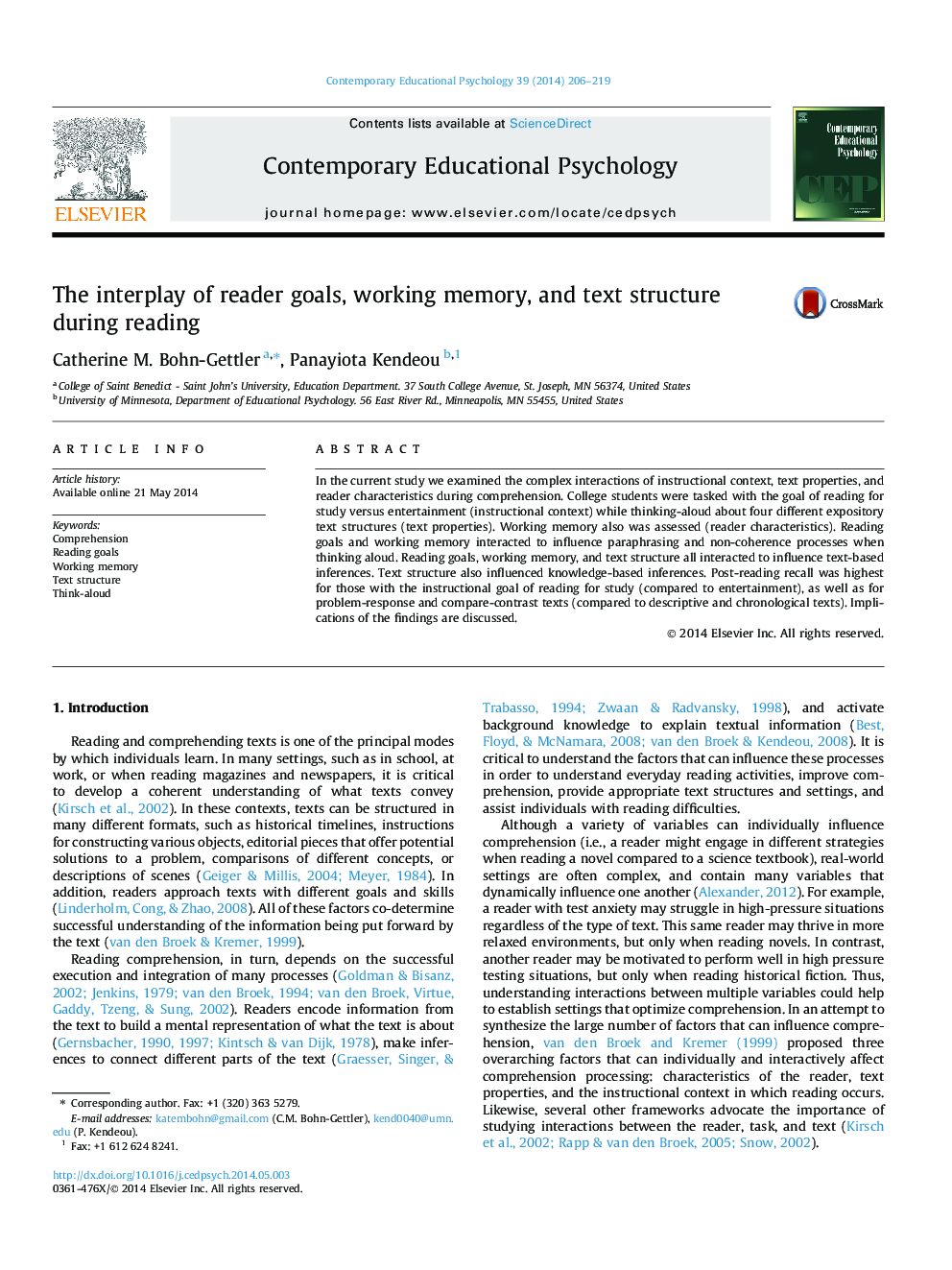| Article ID | Journal | Published Year | Pages | File Type |
|---|---|---|---|---|
| 352590 | Contemporary Educational Psychology | 2014 | 14 Pages |
•Readers with high working memory adjust processing as a function of reading goal.•Reading goals, text structure, and working memory interactively affect inferencing.•Post-reading recall increases when reading with a study goal.•Post-reading recall increases for compare-contrast and problem-response texts.
In the current study we examined the complex interactions of instructional context, text properties, and reader characteristics during comprehension. College students were tasked with the goal of reading for study versus entertainment (instructional context) while thinking-aloud about four different expository text structures (text properties). Working memory also was assessed (reader characteristics). Reading goals and working memory interacted to influence paraphrasing and non-coherence processes when thinking aloud. Reading goals, working memory, and text structure all interacted to influence text-based inferences. Text structure also influenced knowledge-based inferences. Post-reading recall was highest for those with the instructional goal of reading for study (compared to entertainment), as well as for problem-response and compare-contrast texts (compared to descriptive and chronological texts). Implications of the findings are discussed.
